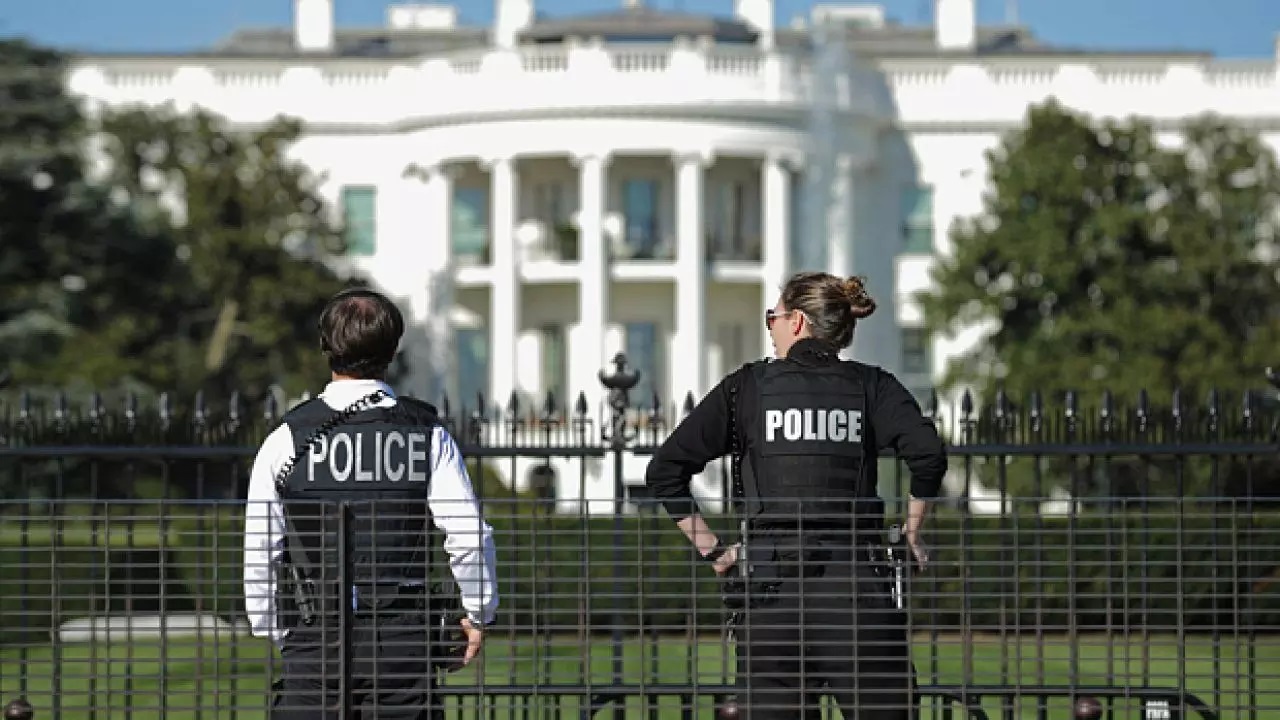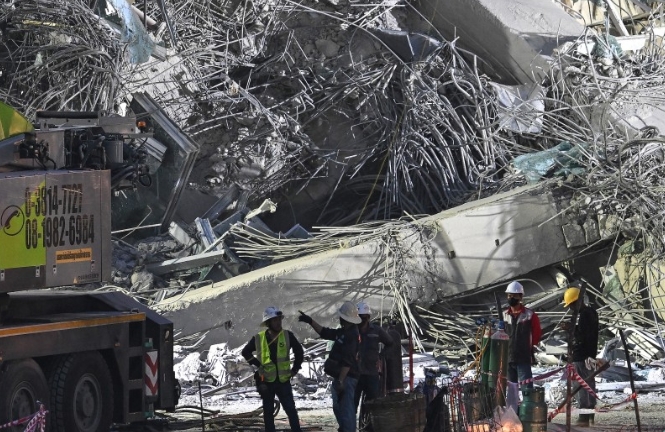Foreign
Israel Launches Extensive Strikes In Lebanon In Retaliation Of Israeli Soldier Killed

At least four people were reportedly killed in Israeli extensive air strikes in Lebanon after Hezbollah rocket fire killed a soldier in Israel.
A woman and two children were killed in the southern Lebanese town of Souaneh, state media and security sources said.
A man who Hezbollah identified as one of its fighters was killed in Aadchit.
Israel’s military said it hit Hezbollah infrastructure in response to a deadly rocket attack on its base in the northern Israeli town of Safed.
The Israeli Defence Force confirmed the attacks on their official X.com platform monitored by SOJ WORLDWIDE, it claimed,
“In response to ongoing rocket fire toward northern Israel, IDF fighter jets struck a series of Hezbollah terrorist targets.
The targets included military compounds, operational control rooms, and terrorist infrastructure. Several targets belonged to Hezbollah’s elite by Radwan Forces.” – IDF said.
Hezbollah fighters have exchanged fire with Israeli forces almost every day along the border since the start of the war between Israel and the Palestinian group Hamas in the Gaza Strip in October.
The clashes have raised fears of a wider regional conflict.
On Wednesday morning, sirens sounded across Northern Israel as barrages of rockets were fired towards the border communities of Netua and Manara, and the town of Safed, which is 14 km (9 miles) south of the frontier.
One Israeli soldier was killed and seven others were wounded after their base in Safed was hit by rockets, Israeli media and emergency services said. The soldier who died was later identified as Staff-Sergeant Omer Sarah Benjo.
A video showed that another rocket landed near the gate of Safed’s hospital.
Hezbollah later claimed it had attacked an “enemy position” in Safed “in support of the people and resistance of Gaza which is being subjected to brutal Zionist aggression with a US green light”.
In the afternoon, the Israel Defense Forces (IDF) announced that fighter jets had “struck a series of Hezbollah terror targets” in Souaneh, Aadchit, Jabal al-Braij, Kfar Houneh and Kfar Dunin in response to the rocket fire.
Hezbollah leader Hassan Nasrallah said it would only cease fire “when the aggression stops and there is a ceasefire in Gaza”
“Among the targets struck were military compounds, operational control rooms, and terror infrastructure,” it said, adding that several targets belonged to Hezbollah’s elite Radwan Force, whose well-trained members are considered the group’s special forces.
Lebanon’s state-run National News Agency (NNA) said a strike on a home in Souaneh killed a Syrian woman, Rawaa al-Mohammed, and her two sons, Hassan Mohsen, 13, and Amir Mohsen, two.
Video from the town showed residents inspecting the rubble of at least one destroyed building and the burned-out wreckage of a car.
NNA also reported that one man was killed and 10 other people were injured in Aadchit. It named the dead man as Hassan Ali Najm, a Hezbollah fighter whose death the group confirmed in a statement on Telegram.
“As we have made clear time and time again, Israel is not interested in a war on two fronts. But if provoked, we will respond forcefully,” Israeli government spokesperson Ilana Stein told Reuters news agency.
“The current reality, where tens of thousands of Israelis are displaced [in the north] and cannot return to their homes, is unbearable. They must be able to return home and live in peace and security.”
The IDF’s chief of staff, Lt Gen Herzi Halevi, meanwhile told the heads of northern municipalities: “There are great achievements striking Hezbollah in Lebanon, but we continue to operate – this is not the time to stop.
“We are intensifying the strikes all the time, and Hezbollah are paying an increasingly heavy price.”
On Tuesday, Hezbollah leader Hassan Nasrallah warned Israeli leaders in a speech that launching a war against the group would result in a “million evacuees” from northern Israel.
“To those who threaten us with a widening of the war: if you widen, we will too,” he said, adding that “those who think the resistance might be afraid are very mistaken”.
He also vowed that Hezbollah would only cease fire “when the aggression stops and there is a ceasefire in Gaza”.

Foreign
U.S. prohibits personnel in China from romantic, sexual relationships with Chinese citizens

The U.S. government has banned American government personnel in China, as well as family members and contractors with security clearances, from any romantic or sexual relationships with Chinese citizens, The Associated Press has learned.
Four people with direct knowledge of the matter told the AP about the policy, which was put into effect by departing U.S. Ambassador Nicholas Burns in January shortly before he left China. The people would speak only on condition of anonymity to discuss details of a confidential new directive.
Though some U.S. agencies already had strict rules on such relationships, a blanket “non-fraternization” policy, as it is known, has been unheard of publicly since the Cold War. It’s not uncommon for American diplomats in other countries to date locals and even marry them.
A more limited version of the policy was enacted last summer prohibiting U.S. personnel from “romantic and sexual relations” with Chinese citizens working as guards and other support staff at the U.S. Embassy and five consulates in China. But Burns, the departing ambassador, broadened it to a blanket ban on such relations with any Chinese citizen in China in January, days before President Donald Trump took office. The AP was unable to determine exactly how the policy defined the phrase “romantic or sexual relationship.”
Two of the people with knowledge of the ban told the AP the new policy was first discussed last summer after members of Congress contacted Burns to express concern that restrictions on such relationships were not stringent enough. The House Select Committee on the Chinese Communist Party did not respond to a request for comment.
The new policy covers U.S. missions in mainland China, including the embassy in Beijing and consulates in Guangzhou, Shanghai, Shenyang and Wuhan, as well as the American consulate in the semi-autonomous territory of Hong Kong. It does not apply to U.S. personnel stationed outside China.
The only exception to the policy is U.S. personnel with pre-existing relations with Chinese citizens; they can apply for exemptions. If the exemption is denied, they must end the relationship or leave their position, the people said. Anyone who violates the policy will be ordered to leave China immediately.
The policy was communicated verbally and electronically to American personnel in China in January, but has not been publicly announced.
The State Department said it does not comment on internal matters. The National Security Council referred questions to the State Department. Burns, the former ambassador, did not reply to an AP request sent to his email address at The Cohen Group, a consultancy that he rejoined as vice chair in February.
Intelligence services across the world have long used attractive men and women to obtain sensitive information, famously during the Cold War. The State Department and other agencies with offices in China have long had stringent reporting requirements on personal relationships for American personnel stationed there, as well as rivals considered high intelligence threats such as Russia or Cuba.
Declassified State Department documents show that in 1987, the U.S. government barred personnel stationed in the Soviet bloc and China from befriending, dating or having sex with locals after a U.S. Marine in Moscow was seduced by a Soviet spy. Such restrictions were relaxed after the collapse of the Soviet Union in 1991, according to news reports at the time.
In China, a blanket ban on such relations has not been in effect for many years. Until the new ban in January, U.S. personnel in China were required to report any intimate contact with Chinese citizens to their supervisors, but were not explicitly forbidden from sexual or romantic relationships.
U.S. diplomats and intelligence experts say that Beijing continues to aggressively use so-called honeypots to access American secrets. In presentations before being stationed in China, U.S. personnel are briefed on case studies where Chinese intelligence services sent attractive women to seduce American diplomats, and warned that dozens of Chinese state security agents can be assigned to monitor any individual diplomat of interest.
Little is known about the U.S. government’s non-fraternization policies elsewhere, as they are considered classified. It is unknown how restrictive such policies are in other countries.
In recent years, tensions between Washington and Beijing have escalated over trade, technology and geopolitical competition.
Peter Mattis, a former CIA analyst and president of The Jamestown Foundation, a Washington-based think tank, said there were at least two publicized cases in which Chinese agents seduced American diplomats stationed in China, though he hasn’t heard of such a case in recent years.
Mattis added that another issue is that Chinese state security doesn’t gather intelligence just through spies, but also by pressing ordinary Chinese people for information, often through threats or intimidation. That, Mattis said, means any Chinese citizen who dates an American diplomat could be vulnerable to coercion.
“The MSS is willing to leverage any human connection that a target has to collect intelligence,” Mattis said, using an acronym referring to China’s Ministry of State Security. “This rule change suggests the MSS has gotten a lot more aggressive at trying to access the embassy and U.S. government.”
The Chinese foreign ministry did not comment on the ban, saying in a faxed statement that it was “more appropriate to ask the U.S. about this question.”
China also has been tightening already strict controls on its personnel overseas, according to Chinese regulations, news reports and four people familiar with China’s bureaucracy who spoke on condition of anonymity so they could discuss a sensitive topic. In recent years, Beijing began strictly enforcing regulations that bar promotions for Chinese civil servants with spouses who acquired foreign citizenship and restrict diplomats from spending an extended period of time in one country, forcing some to return to China.
China’s foreign ministry and many other government bodies bar their officials and staff from sexual or romantic relations with foreign citizens, while members of the Chinese military or police are generally barred from leaving China altogether without express approval from their supervisors.
Foreign
Suspicious package found near White House day after Trump imposed tariffs

Law enforcement is currently responding to reports of a suspicious package near the White House.
The area has been secured, and specialized units are on-site to assess the situation.
Authorities are urging the public to avoid the vicinity until further notice.
The section between 15th and 17th streets is completely shut down.
The bomb squad is now examining a suspicious package discovered in a dumpster nearby.
The package was found about 500 meters from the White House. President Donald Trump is currently in residence.
This is coming a day after Trump imposed tariffs on several countries, including US allies.
Foreign
Myanmar Quake Victim Rescued After 5 Days

Rescuers on Wednesday pulled a man alive from the rubble five days after Myanmar’s devastating earthquake, as calls grew for the junta to allow more aid in and halt attacks on rebels.
The shallow 7.7-magnitude earthquake on Friday flattened buildings across Myanmar, killing more than 2,700 people and making thousands more homeless.
Several leading armed groups fighting the government have suspended hostilities during the quake recovery, but junta chief Min Aung Hlaing said military operations would continue — despite international criticism of multiple reported air strikes.
UN agencies, rights groups and foreign governments have urged all sides in Myanmar’s civil war to stop fighting and focus on helping those affected by the quake, the biggest to hit the country in decades.
Hopes of finding more survivors are fading, but there was a moment of joy on Wednesday as a man was pulled alive from the ruins of a hotel in the capital Naypyidaw.
The 26-year-old hotel worker was extracted by a joint Myanmar-Turkish team shortly after midnight, the fire service and junta said.
Dazed and dusty but conscious, the man was pulled through a hole in the rubble and put on a stretcher, video posted on Facebook by the Myanmar Fire Services Department showed.
Call for peace
Min Aung Hlaing said Tuesday that the death toll had risen to 2,719, with more than 4,500 injured and 441 still missing.
But with patchy communication and infrastructure delaying efforts to gather information and deliver aid, the full scale of the disaster has yet to become clear, and the toll is likely to rise.
The World Health Organization (WHO) reported severe damage in the city of Sagaing, citing local rescuers saying one in three houses there have collapsed.
Healthcare facilities, damaged by the quake and with limited capacity, are “overwhelmed by a large number of patients”, while supplies of food, water and medicine are running low, WHO said in an update.
Sagaing has seen some of the heaviest fighting in Myanmar’s civil war, and AFP journalists have not been able to reach the area.
Relief groups say the overall quake response has been hindered by continued fighting between the junta and the complex patchwork of armed groups opposed to its rule, which began in a 2021 coup.
Julie Bishop, the UN special envoy on Myanmar, called on all sides to “focus their efforts on the protection of civilians, including aid workers, and the delivery of life-saving assistance”.
Even before Friday’s earthquake, 3.5 million people were displaced by the fighting, many of them at risk of hunger, according to the United Nations.
Late Tuesday, an alliance of three of Myanmar’s most powerful ethnic minority armed groups announced a one-month pause in hostilities to support humanitarian efforts in response to the quake.
The announcement by the Three Brotherhood Alliance followed a separate partial ceasefire called by the People’s Defence Force — civilian groups that took up arms after the coup to fight junta rule.
But there have been multiple reports of junta air strikes against rebel groups since the quake.
“We are aware that some ethnic armed groups are currently not engaged in combat, but are organising and training to carry out attacks,” said Min Aung Hlaing, mentioning sabotage against the electricity supply.
“Since such activities constitute attacks, the Tatmadaw (armed forces) will continue to carry out necessary defensive activities,” he said in a statement late Tuesday.
But the UN special rapporteur on human rights in Myanmar, Tom Andrews, rejected the junta’s characterisation of its operations.
“Senior General Min Aung Hlaing has described ongoing junta attacks in the midst of Myanmar’s suffering as ‘necessary protective measures’,” he wrote on X.
“They are neither necessary nor protective. They are outrageous and should be condemned in the strongest possible terms by world leaders.”
Rescue teams work to save residents trapped under the rubble of the destroyed Sky Villa Condominium development in Mandalay on March 29, 2025, a day after an earthquake struck central Myanmar. More than 90 people could be trapped inside the crushed remains of an apartment block in Mandalay in central Myanmar destroyed by a devastating earthquake, a Red Cross official told AFP on March 29 as rescuers worked to free the victims. (Photo by Sai Aung MAIN / AFP)
Thailand toll rises
Australia’s government decried the reported air strikes saying they “exacerbated the suffering of the people”.
“We condemn these acts and call on the military regime to immediately cease military operations and allow full humanitarian access to affected areas,” Foreign Minister Penny Wong said.
Amnesty International said “inhumane” military attacks were significantly complicating earthquake relief efforts in Myanmar.
“You cannot ask for aid with one hand and bomb with the other,” said the group’s Myanmar researcher Joe Freeman.
Hundreds of kilometres away, in the Thai capital Bangkok, workers continued to scour through the rubble of a collapsed 30-storey skyscraper.
The structure had been under construction when the earthquake hit and its crash buried dozens of builders — few of whom have come out alive.
The death toll at the site has risen to 22, with more than 70 still believed trapped in the rubble.
AFP
-

 News22 hours ago
News22 hours agoNatasha: Kogi PDP hammers Ododo, reiterates unfeigned support for her
-

 Economy21 hours ago
Economy21 hours agoSEE Black Market Dollar To Naira Exchange Rate Today 3rd April 2025
-

 News17 hours ago
News17 hours agoJust in: “Ignore rumour mongers, there was no time I collapsed “-Wike asserts
-

 News17 hours ago
News17 hours agoCJ transfers Natasha’s case to Justice Nyako
-

 News20 hours ago
News20 hours agoJust in: INEC dumps recall petition against Sen Natasha
-

 News6 hours ago
News6 hours agoHow I Got Helicopter Idea To Visit Kogi State – Senator Natasha
-

 Entertainment6 hours ago
Entertainment6 hours agoWhy I didn’t sleep with Bobrisky – Portable
-

 News5 hours ago
News5 hours agoRivers CJ directs High Court judges to proceed on break




